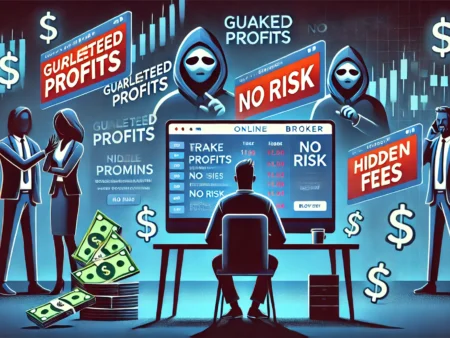When it comes to cryptocurrencies, Bitcoin and Ethereum often dominate the headlines, but Litecoin (LTC) has been a significant player in the space since its creation in 2011 by Charlie Lee, a former Google engineer. Often referred to as the “silver to Bitcoin’s gold,” Litecoin was designed to be a faster and more efficient version of Bitcoin. However, with the rise of newer cryptocurrencies, many investors wonder whether Litecoin is still worth adding to their portfolios. In this article, we’ll explore the fundamentals of Litecoin, its use cases, and whether it remains a good investment in 2024.
What is Litecoin?
Litecoin is a peer-to-peer digital currency that allows instant, near-zero cost payments to anyone in the world. Like Bitcoin, Litecoin operates on a decentralized network and uses blockchain technology to ensure secure, transparent transactions. However, it was designed with a few key improvements over Bitcoin:
- Faster Transaction Speed: Litecoin’s block generation time is 2.5 minutes, compared to Bitcoin’s 10 minutes. This allows for quicker confirmation of transactions.
- Supply Cap: Litecoin has a maximum supply of 84 million coins, four times that of Bitcoin’s 21 million, which could theoretically make it less scarce but also more accessible.
- Scrypt Algorithm: Litecoin uses the Scrypt hashing algorithm, which is less resource-intensive than Bitcoin’s SHA-256 algorithm, making it easier for individuals to mine using consumer-grade hardware.
Use Cases for Litecoin
Litecoin was primarily developed as a digital payment system. Its faster block generation time and lower transaction fees compared to Bitcoin make it a better option for everyday transactions, such as buying goods and services. Several merchants accept Litecoin as a form of payment, and it has been integrated into various payment processors, including BitPay.
Beyond everyday transactions, Litecoin also functions as a testbed for Bitcoin improvements. For example, Litecoin was one of the first major cryptocurrencies to implement Segregated Witness (SegWit), a protocol upgrade designed to increase blockchain capacity and speed. Litecoin’s willingness to adopt innovations has helped improve its reputation as a technologically flexible cryptocurrency.
Is Litecoin Still Worth Investing In?
The Positives:
- Established History and Reputation: Litecoin has been around for more than a decade, and its long track record provides a sense of stability in a volatile crypto market. It has a dedicated community and a strong brand as one of the original cryptocurrencies.
- Lower Transaction Fees and Faster Processing: Litecoin’s lower transaction fees and faster processing time continue to make it more efficient than Bitcoin for smaller, everyday transactions. This utility gives it a niche in the market.
- Upcoming Halving Event: Litecoin undergoes a halving event approximately every four years, similar to Bitcoin. The next halving is expected in 2027, and historically, halving events have led to price increases as the reduced mining rewards tighten the supply.
- Growing Integration in Financial Systems: Litecoin is increasingly being integrated into cryptocurrency payment systems and DeFi (Decentralized Finance) platforms. This could potentially increase demand for LTC as a medium of exchange.
The Negatives:
- Lack of Unique Features: One of the criticisms of Litecoin is that it doesn’t offer anything particularly unique compared to other cryptocurrencies. While it’s faster and cheaper than Bitcoin, newer cryptocurrencies like Solana and Cardano have emerged with more advanced smart contract capabilities, posing competition.
- Declining Market Share: Over the years, Litecoin’s market share has been overshadowed by the rise of newer projects with more complex features like DeFi applications, non-fungible tokens (NFTs), and advanced smart contracts. Litecoin’s role as a “transactional cryptocurrency” is being challenged by these more versatile assets.
- Price Volatility: Like all cryptocurrencies, Litecoin is subject to extreme volatility. While it can offer significant gains, it also comes with the risk of substantial losses. Investors need to be prepared for sharp price fluctuations, especially in times of broader market uncertainty.
Litecoin vs. Bitcoin: Key Differences
While Litecoin shares many similarities with Bitcoin, there are important differences that could influence an investor’s decision:
- Speed and Cost: Litecoin’s faster transaction times and lower fees make it more attractive for small, frequent transactions.
- Market Perception: Bitcoin is often seen as a store of value or “digital gold,” whereas Litecoin is perceived more as a medium of exchange. Bitcoin’s scarcity and stronger brand recognition give it an edge as a long-term investment.
- Development and Innovation: Bitcoin remains more conservative in its upgrades, whereas Litecoin is often quicker to adopt new technologies like SegWit and the Lightning Network.
Should You Invest in Litecoin in 2024?
Whether Litecoin is a good investment depends on your goals and risk tolerance. If you’re looking for a faster, cheaper alternative to Bitcoin for day-to-day transactions, Litecoin remains a strong contender. Additionally, with the next halving event in sight, some investors speculate that LTC could see another price rally in the near future.
However, if you’re looking for more innovative use cases, such as DeFi or NFTs, Litecoin may not offer the same opportunities as platforms like Ethereum, Cardano, or Solana. Its relatively limited utility compared to these newer projects might make it less appealing to long-term investors seeking cutting-edge technologies.
Conclusion
Litecoin is still a solid cryptocurrency with an established track record, offering faster transactions and lower fees compared to Bitcoin. It’s well-suited for use as a medium of exchange and continues to play an important role in the cryptocurrency ecosystem. However, its lack of groundbreaking features and growing competition from more versatile blockchains may limit its future growth potential.
Ultimately, if you believe in the longevity of cryptocurrencies and Litecoin’s role as a faster, transactional alternative to Bitcoin, it may still be worth considering for your portfolio. Just be sure to weigh the risks carefully, as the cryptocurrency market remains highly volatile and unpredictable.
As always, when investing in cryptocurrencies, do your own research (DYOR) and consider consulting with a financial advisor to assess whether Litecoin fits your investment strategy.













